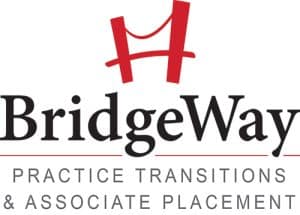The DSO Effect on Practice Transitions
I received a call from a former client the other day asking me if we had any non-corporate dentists buying practices anymore. This was a client who had purchased her practice only 2 years ago and already thought that the transition landscape had changed so much that Dental Service Organizations (DSO) were now the only buyers for dental practices. I have been making it a point to talk about DSOs each time I present to a group, but until I got that phone call, I didn’t realize how big and widespread the misconceptions were and how important it has become to inform the dental community about their options.
The latest report from the Health Policy Institute regarding DSO trends, “How Big are Dental Service Organizations?”, shows that in 2016 the nationwide average of US dentists working for a DSO was 8.3%. That was up from 7.4% in 2015. It is no surprise that this number is moving higher, but I believe that is still much that can be done to curb it.
As a practice broker, I can use my influence to sell more or less practices to DSOs. Would it be easier to keep a stable of 10 DSOs to sell all of my practices to instead of maintaining a pipeline of hundreds of new and eager buyers? Probably. But, I am a strong proponent of private practice and the higher quality of patient care that they provide. Our nation is already struggling with a decline of small businesses; do I really want to be a contributor to that trend as well?
I have learned a lot from talking to dentists around the country. The information that is out there on DSOs as they relate to practice transitions varies widely and is much exaggerated. They have a huge marketing reach and are pounding their target audience with messages that are misleading and half-truths. No longer do you “sell” to a DSO; now you “affiliate” with them. No longer do you ”work” for a DSO; you “partner” with them. They realize that they have somewhat of a bad reputation and they are using the power of words to try to change that.
If you are a young dentist coming out of school, you are probably overwhelmed by the volume of DSOs courting you to come work for them. DSOs can offer a higher compensation than most private practices and typically provide benefits such as health insurance and retirement plans. I don’t find this to be too much of a bad thing, but it is sad to see private practice owners struggle to retain good talent because they can’t operate on the same margins as a DSO. However, most young dentists only spend a few years in the corporate world before they decide that they have had enough. Most of our buyers have paid their dues in this arena and have learned a lot about what they do and do not want to do in their future practice.
If you are already a practice owner, you have probably received hundreds of postcards and letters from various DSOs about receiving the maximum value for your practice and the freedom to enjoy a work-life balance if you sell to them. It has been my experience that very few sellers actually get what those marketing pieces promise. The DSOs are only willing to pay top dollar for a very specific practice. Most practices don’t fit that criteria. If they don’t, the DSO will probably still make an offer, but it won’t be as much as their advertisements suggest they usually pay for practices. Since most dentists have never sold a practice, they don’t have the knowledgebase to realize that the offer from the DSO is not the best offer that they can get.
People forget that there is more to an offer besides just the purchase price. Is the DSO paying the entire purchase price to you at closing? Will it be a mix of cash and stock in the company? Will you be required to owner finance a portion that only gets paid out if you meet certain production goals? How long do you have to work after the transition? What are the penalties if you leave early? How much will you be paid? Are the accounts receivable part of the purchase price or do you get to keep them? The answers to these questions are instrumental in determining the overall value of the package being offered to you.
If you are willing to explore the option to sell to an individual dentist, you will find them better tailored to your situation. When we work with a seller, the first step is to come up with a transition plan that meets the needs of the seller and then we go looking for the right buyer for that seller. When you work with corporate buyers, you are forced into their requirements. When you work with someone like me, you are the mold and we find the buyer that fits into it.
Individual buyers can be flexible with the seller’s post-sale plans. Do you want to walk away? Do you want to transition over 3 months? Do you want to work part time for two years? They can pay up to 90% of revenue for the right opportunity. With a less than 1% default rate, banks love lending money to them! And wouldn’t it be more gratifying to hand your patients over to a younger dentist ready to make your practice his home for the next 30 years?
Interested in a blend of a DSO and an individual buyer? There are many dentists entering the small group practice space. These are dentists that are interested in owning more than one practice, but don’t typically grow beyond 10. They are better suited than the first-time buyer for the higher grossing practices, as they have the skill set needed to operate such a practice and can typically offer a higher price because the banks will look at their overall revenue when determining how much to lend. Also, these small group practices typically offer a competitive compensation for the dentist that stays on to work and won’t have any post-sale production requirements.
The sky is not falling. You do not have to become a DSO, sell to a DSO, or work for a DSO. The Corporate space is growing, and growing faster than we’d like, but that doesn’t make it your only choice. If you are considering buying or selling a practice, it pays to look at all of your options.

